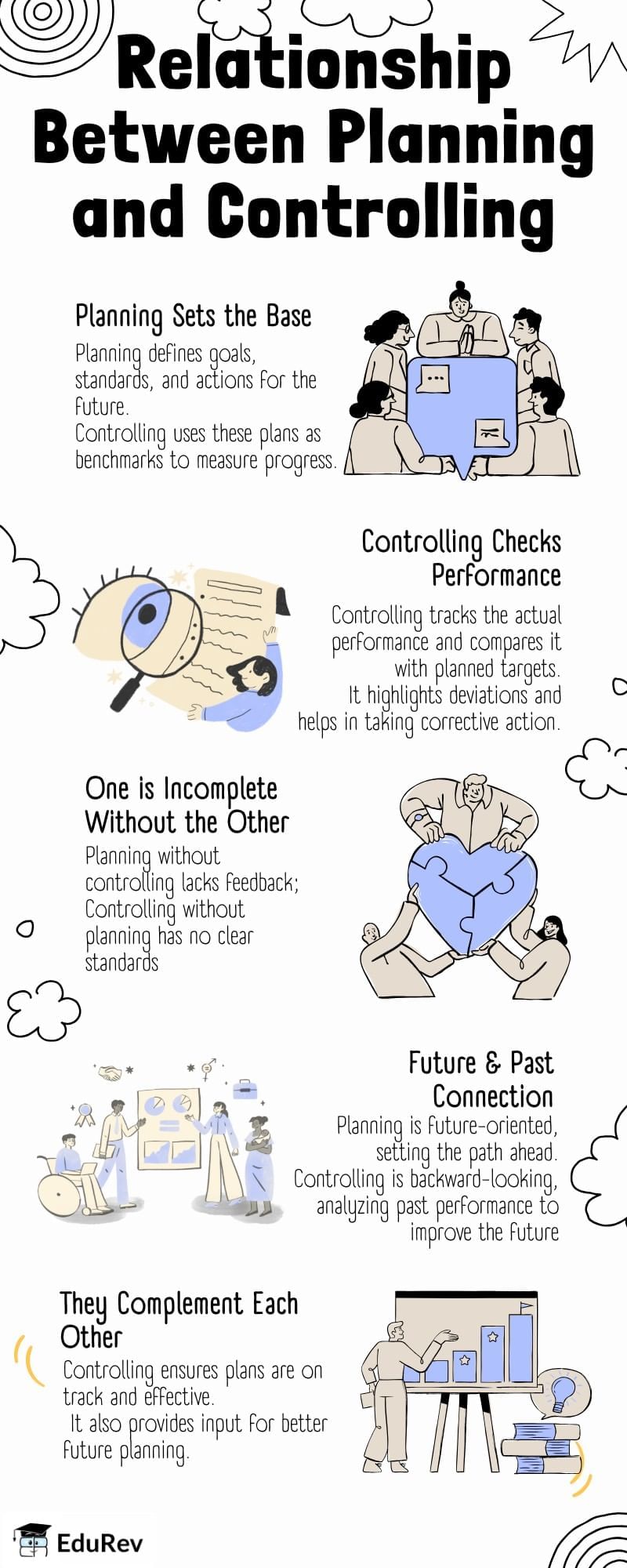Commerce Exam > Commerce Notes > Business Studies (BST) Class 12 > Infographic: Controlling
Infographic: Controlling | Business Studies (BST) Class 12 - Commerce PDF Download

The document Infographic: Controlling | Business Studies (BST) Class 12 - Commerce is a part of the Commerce Course Business Studies (BST) Class 12.
All you need of Commerce at this link: Commerce
|
51 videos|230 docs|49 tests
|
FAQs on Infographic: Controlling - Business Studies (BST) Class 12 - Commerce
| 1. What are the key principles of controlling commerce? |  |
Ans. The key principles of controlling commerce include regulation of trade practices, ensuring fair competition, protecting consumers, and maintaining economic stability. Governments often implement policies and laws to oversee these aspects, addressing issues such as monopolies, price-fixing, and deceptive advertising.
| 2. How does government regulation impact small businesses? |  |
Ans. Government regulation can significantly impact small businesses by imposing compliance costs and operational restrictions. While regulations aim to protect consumers and promote fair competition, they can also create barriers to entry, making it challenging for small businesses to compete with larger corporations that have more resources.
| 3. What are some historical examples of commerce control measures? |  |
Ans. Historical examples of commerce control measures include the Sherman Antitrust Act, which was established to combat monopolies in the late 19th century, and various trade tariffs introduced during economic crises to protect domestic industries. These measures aimed to regulate competition and stabilize the economy.
| 4. How do international trade agreements influence commerce control? |  |
Ans. International trade agreements influence commerce control by setting rules and standards for trade between countries. They can reduce tariffs and promote free trade, but may also include regulations that protect local industries and consumers. Such agreements aim to create a balanced trading environment while preserving national interests.
| 5. What role do consumer protection laws play in commerce control? |  |
Ans. Consumer protection laws play a crucial role in commerce control by ensuring that businesses adhere to ethical practices and that consumers are safeguarded from fraud, unsafe products, and deceptive marketing. These laws help maintain trust in the marketplace and encourage fair trade practices among businesses.
Related Searches
















